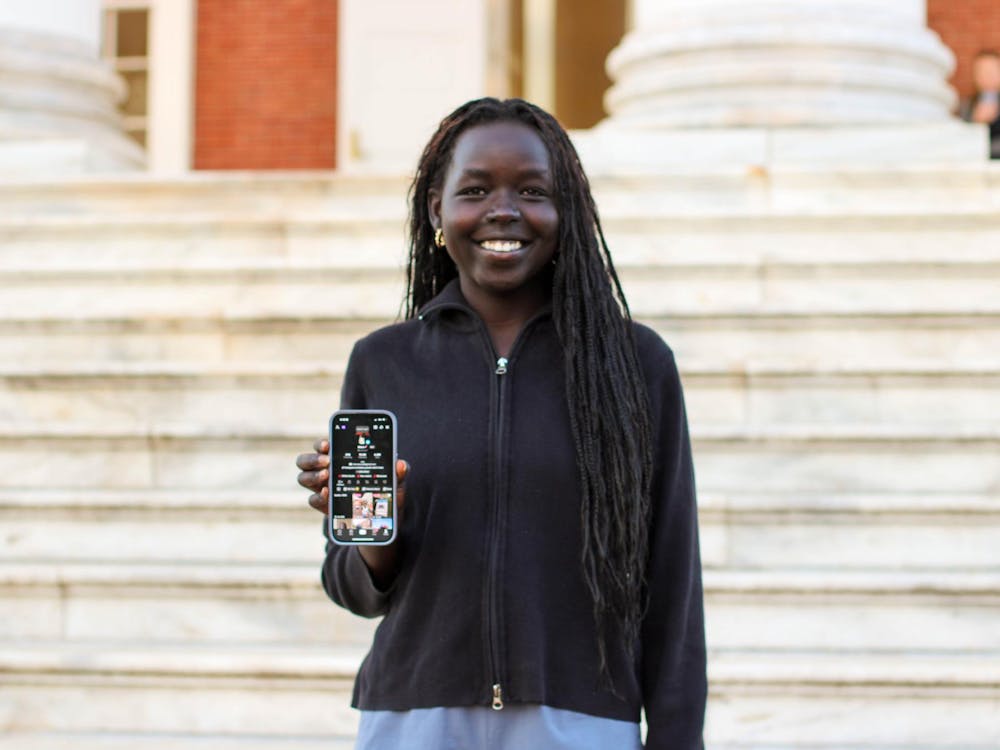As third-year College student Lauren Rylander arrives back to her dorm at 6 Monday morning, she can barely walk or think straight. Fresh off a 12-hour shift as an emergency medical technician for the Charlottesville-Albemarle Rescue Squad, the only way for Rylander to combat the sleep deprivation is by taking a warm shower. She then assembles her daytime outfit, packs her backpack and heads off for a day in academia on Grounds.
In these moments, the most important thing to Rylander is that she keeps her focus on the school day ahead. For her, this means separating her EMT shift from her student life and making sure to never “carry the call into class.”
Like Rylander, many students at the University face the routine challenges of balancing their responsibilities as night shift workers with their regular lives during waking hours. Whether they are an EMT, a certified nursing assistant or a Resident Advisor, these individuals are not only responsible for keeping up with sleep, but also managing their school work, social lives, extracurriculars and personal health.
Third-year Education student Mary Gombos, who is a CNA at the University Medical Center, encounters similar experiences balancing work with other commitments. Awake for 30 hours at a time, she finds herself fueled by Celsius and stamina after 7 p.m. to 7 a.m. hospital shifts. Gombos, who also serves as the Vice President of Finance for Pi Beta Phi sorority and a CPR instructor for CavsCARE, was transparent about the difficulties of navigating an already-involved week with 12 fewer hours.
“It’s definitely a lot of planning … It’s just the mentality [that] somehow I’ll make it work,” Gombos said. “All the things I’m a part of I’m really dedicated to and interested in, and I love doing them, so it doesn’t make [the shifts] as hard.”
Organization is key, so these students must plan their days — oftentimes by cutting things out — to consider both work shifts and academic work. Nema Saleh, RA in Gibbons House and fourth-year Engineering student, said even though she’s only on call a few times each semester, she will postpone her daily gym time or leave a social event early to accommodate an in-residence shift that could keep her up as late as 4 a.m.
While typically uneventful, these nights — which start at 10 p.m. — require Saleh to be ready for any situation. She keeps her phone ringer on until 8 a.m., periodically checks common spaces and steps in to help if an issue arises. To stay alert, Saleh ensures that her working evenings are entirely free from any outside commitments.
“[For] the night shifts, I just plan around them, which is really helpful.” Saleh said. “The nights I have coverage, I have to adjust [my schedule] ... but otherwise it doesn’t bother me.”
On the other hand, Rylander takes a more proactive approach to clearing her schedule. She said that she selects her classes each semester with EMT shifts in mind, making sure she has enough downtime to recover from weekly nights at the station.
Despite the sizable commitment, the drive of these students — fueled by a passion for their work and the communities they serve — make it more palatable for them to live these arduous double lives.
Rylander became certified as an EMT in May 2024, motivated by the opportunity to show up for her neighbors in moments of crisis. Over the last few months, Rylander has realized the impact that she can have when she is there for someone in an emergency.
“What’s important is … to take the time to listen to their concern, to address their need and to make sure that who you hand them off to next has a thorough understanding [of] what they need,” Rylander said.
While night shifts like Rylander's can be physically and emotionally exhausting at times, they can also create communities that better integrate students into the fabric of the University and greater Charlottesville. Whether it be cooking dinner for her fellow EMTs or hosting Harry Potter movie nights off-call, Rylander said her night shift has connected her to a network of people motivated by similar goals.
At the hospital, Gombos has also fostered a strong sense of community. During her Thursday and Friday night shifts, Gombos works with her colleagues to attend to eight patients at a time, assisting with their hygiene and administering treatment. As Gombos spoke about forging bonds with both her patients and a tight-night crew of nurses, she pushed back against the misconception that working through the night is isolating.
“[It’s] been really great to have this network,” Gombos said. “I'm being exposed to different kinds of people all the time and building great relationships that I think will last forever.”
Not only can these bonds provide companionship for students, but they can also supply comfort in the face of emotionally resonant situations. This has especially been the case for Rylander, who — unlike her peers conducting bathroom checks and taking vitals — must stay resilient in the face of “gut-wrenching” 9-11 emergencies.
She described one such emergency this past spring as a particularly challenging moment. Rylander said she was dispatched at 5 a.m. to respond to a call that concluded long after her shift was supposed to end. Upon returning to the station, she saw a friend on the upcoming day crew who noticed her exhaustion. Rather than interrogate why she was on the verge of tears, he offered her Bodo’s and accompanied her while she wrote up reports from the night before, which Rylander said “meant the world” to her.
Even after forgoing a night’s sleep — and sometimes dealing with tough situations — these students shower and attend class each morning like everyone else, the focus of their day still on schoolwork and achieving the best versions of themselves.
Oftentimes, being able to show up for others and put your best foot forward requires an emphasis on wellness. While the definition of “self-care” varies by person, Gombos said she sees value in taking downtime for herself when it becomes available. When she does, Gombos said that she tries to block outside noise and focus on being present — strategies that, she said, can help all students appreciate the little moments that disappear under the demands of University life.
“I'll really just try to be in the moment,” Gombos said. “I think that's a huge thing for a lot of U.Va. students — you're never going to have huge segments of time where you can fully relax and be present, but you have to take those little parts of the day where you can decompress.”







